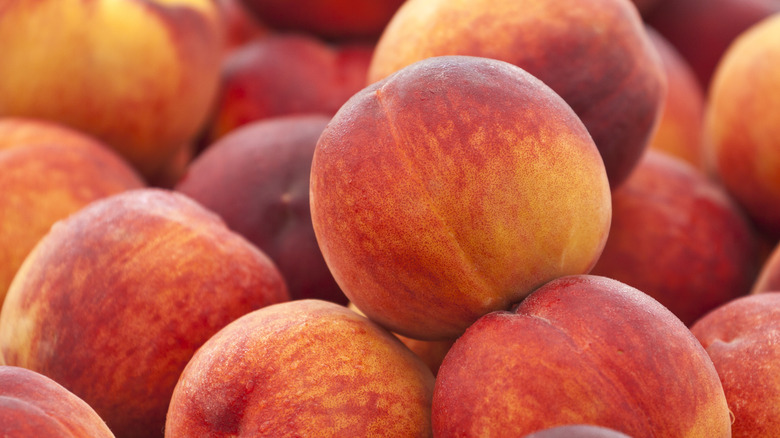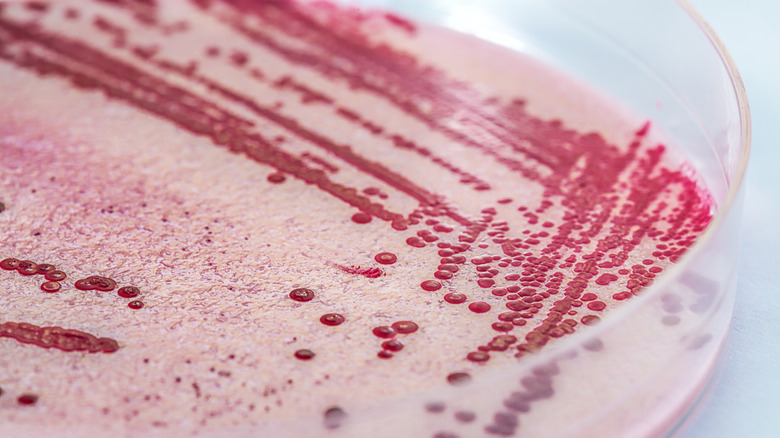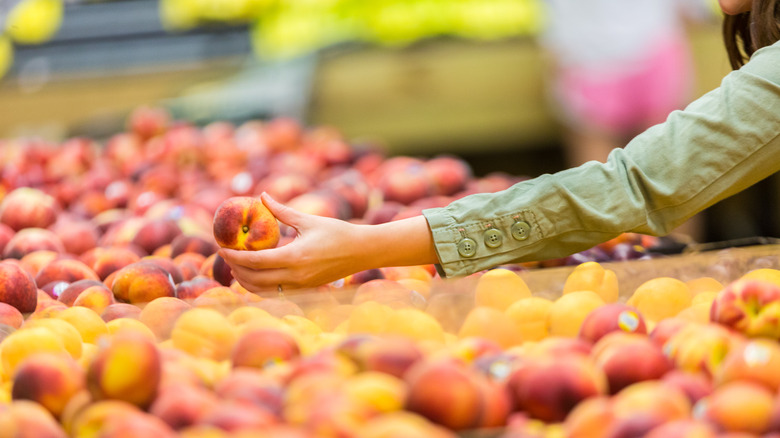Peaches, Plums, And Nectarines Possibly Tainted With Listeria
On November 17, the U.S. Food and Drug Administration (FDA) announced that HMC Group Markeing, Inc. issued a voluntary recall of peaches, plums, and nectarines. The recall was announced after peaches from the company were linked to 11 cases of listeriosis, an illness caused by the Listeria monocytogenes bacteria, also called listeria.
The recall applies to fruit sold between May 1 and November 15, 2022, and between May 1 and November 15, 2023, sold under the brand names HMC Farms and Signature Farms. While the fruit was distributed nationwide, none of the affected fruit is currently available in retail stores. The recalled fruit was sold both individually and packaged in boxes or bags. However, the recall only applies to conventionally grown fruit — organic fruit should be okay. Check the FDA's website for a complete list of the recalled products, including pictures of the PLU stickers and packaging.
It might seem odd to issue a recall for fresh fruit that was sold over a year ago, but there's a good reason. According to the report, listeria can survive for a long time, even after it has been frozen. There's concern that customers might still have some of the affected fruit stored in their freezers. If you think you may have eaten some of the affected fruit, monitor your health for symptoms of listeriosis and discard any fruit immediately. More information on listeriosis can be found on the Centers for Disease Control (CDC) website.
What is listeriosis?
Infections caused by listeria are serious: according to the CDC, it's the third most common cause of death from foodborne illness in the United States. The CDC's symptoms page lists fever, headache, nausea, flu-like symptoms like muscle aches and fatigue, a stiff neck, confusion, loss of balance, and seizures. The FDA notes that symptoms can take up to a while to develop. While some people may see symptoms within a few hours of eating contaminated food, some severe forms of the illness take up to three months to appear.
If you have a weakened immune system or are over the age of 65, you're at high risk. Listeria can cause miscarriages and stillbirths, too. Babies and young children are also at high risk, so parents and caregivers should watch out if they suspect that a child has been exposed. While listeria can cause illness among other people, symptoms are usually mild.
According to Michigan State University, there are ways to protect against listeria. Avoid unpasteurized dairy products and cook deli meats if you're vulnerable. Wash all fruits and vegetables with water before you eat them. That means all fruits and vegetables — including ones that you peel, like oranges and bananas. Since listeria can spread in cool temperatures, you should take precautions to prevent cross-contamination in your freezer or refrigerator. Wrap food in plastic or foil before putting it away, and wipe down your refrigerator regularly with soap and water or diluted bleach.
What should you do if you bought a recalled product?
As the FDA explains, customers who bought the recalled fruit should not consume it. Instead, discard it immediately. If you currently have peaches, plums, or nectarines in your freezer and can't remember where you bought them, you might want to consider discarding them. Food Poisoning Bulletin recommends wiping your refrigerator and freezer with diluted bleach and washing your hands thoroughly with soap and water after handling the fruit. You may also be able to contact the store for a refund.
Closely monitor your health — and anyone else who may have eaten the fruit. If you do experience health problems from eating contaminated food, you can file a report with the FDA. You can also find a thorough list of recalls, market withdrawals, and safety alerts on the FDA's website.
For further information related to this outbreak, call HMC Group Marketing, inc., at 844-483-3867, Monday-Friday, 8:00 a.m. – 8:00 p.m. Eastern Time.


